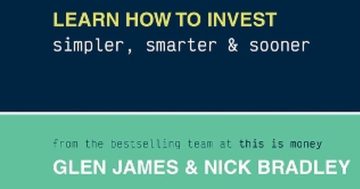James Dennin* shares the three best things he has learned as a personal finance writer who was initially pretty clueless about his own finances.

Photo: RichVintage
Everyone gets anxious when they get their first big professional break.
For me, the sense of imposter syndrome at my first big media job was particularly acute: here I was about to start exhorting readers to save, invest and budget.
Meanwhile, I didn’t have a credit card or an emergency fund.
In a defunct retirement account from my first job, I’d saved about $700.
In my defence, it’s tough out there for young people trying to save up.
I graduated from university, and have always had good jobs with health insurance and benefits, but like three-quarters of my peers, I’ve had to turn to the bank of Mum and Dad once or twice.
In the two years I’ve spent writing about money, a lot has changed for me financially.
I have more than a month’s worth of expenses saved, a “very good” credit score and two retirement accounts for tax diversification.
Here are the three best things I’ve learned as a personal finance writer who was, at least at the start, pretty clueless when it came to my own personal finances.
- You don’t need to know much about stocks to invest
Even before this job, I knew the stock market pretty well.
I wrote daily about the markets, and had a sense of why a stock went up or down on a given day.
I also had strong opinions on the virtues of the price earnings ratio.
And yet, my stock market knowledge wasn’t all that useful when I wasn’t making enough money to invest any of it.
And more importantly, when I did start investing a lot, I realised that the stocks or mutual funds I picked out didn’t really matter, compared to the amount and continuity of my contributions.
That will change, hopefully, as my nest egg starts to get bigger, my risk profile changes and I get closer to retirement.
But by investing all of my money in low cost index funds, 40 years from now I’ll have also saved hundreds of thousands of dollars in investment fees alone, according to one estimate.
It’s difficult to overstate the personal finance benefits of using inertia to your advantage.
But the same force that makes getting off the couch feel like a Herculean task can be used to your advantage by creating roadblocks against your spending, as behavioural economists like Richard Thaler have often shown.
Of all the advice I’ve offered over the past two years, automating my saving and investing with recurring payments is what’s helped the most.
- It pays to pick up the phone
Despite all the progress I’ve made setting up my financial life, my proudest non-work achievement over the past two years was winning a war with my landlord.
As is customary in a competitive housing market, I’ve been asked for an extra month’s rent up front to make up for an unsatisfactory “credit check.”
Most personal finance “advice” really isn’t rocket science, as NerdWallet’s Liz Weston once told me.
The exception may be credit scores: complex formulas that are used by lenders to figure out how trustworthy you are before deciding whether to give you a loan.
As you might expect, whether someone’s a good bet to rent an apartment is a different question than whether someone is a sound prospect for a boat loan.
When you’ve just charged your plane tickets to Europe also plays a role, since you have less money to borrow in an emergency.
In short, we have lots of different credit scores, and therefore, it’s an important figure to pay attention to.
Fortunately for me, my landlord didn’t know any of this, so he had nothing to say when he got my phone call demanding to know what kind of scores he’d used in our credit check.
He backed down, saving my roommates and me $3,000 and giving me a practical lesson in the value of picking up the phone to solve a problem.
Research backs this up: eight in 10 people who call their credit card company to request a higher limit receive one.
- You have more control over your finances than you think
Aside from simply not having the cash, another reason it’s hard to start saving and investing for retirement is that the financial services industry doesn’t exactly have the strongest incentive to make things clear and simple.
If piling up a nest egg was so easy, why would bankers need to make so much money?
The average terms of agreement for a bank account or credit card is around 5,000 words of legalese, and written beyond the typical peron’s reading level.
Even the simplest investing tools still require you to wrap your head around fairly abstract concepts like “risk tolerance.”
Finance people love to use fancy words to describe pretty simple things.
Debt, for example, cannot be divided into “pieces,” it’s divided into “tranches” — a much more intimidating word.
But the truth is you don’t need to know very much about the components of your mutual fund or how housing depreciation or the price of soy should be affecting your investing strategy.
The people who’ve made bets on the wisdom of their stock picking strategies usually fall on their face.
Knowing what you can control — where your paycheque goes, how much you pay for financial advice, the price you pay to acquire skills — is what really counts.
* James Dennin is Innovation Editor at Inversedotcom. He tweets at @JamesFDennin.
This article first appeared at mic.com.











